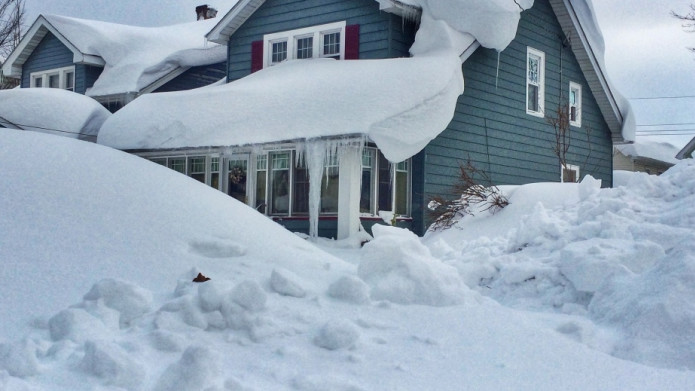The National Home Service Contract Association also reports an increase in consumer knowledge, value & popularity of home service contracts
Lenexa, Kan. – Sept., 2016 The National Home Service Contract Association (NHSCA), a non-profit 501(c) (6) industry trade organization comprised of member companies representing home service contract providers and consumer interests throughout the United States, announces today that its members sold more than 4 million home service contracts (often referred to as home warranties) in 2015, an 8-percent growth from 2014.
“The NHSCA is an advocate for the home service contract industry and works diligently to further educate consumers about the value that home service contracts deliver,” said Mike Bartosch, president of the NHSCA. “The wholesale value of these contracts easily exceeds $1 billion in savings to consumers annually.”
The home service contract industry provides service, repair or replacement of major household systems and appliances that fail due to normal wear and use. Contracts generally cover items such as dishwashers, ovens, cooktops, garbage disposals, microwave ovens and water heaters; electrical, plumbing and heating systems; as well as ventilation and air conditioning systems (HVAC).
“If a system or appliance stops working, contact your home service contract provider. If a home system or appliance is damaged by a falling tree, catches fire or is subject to vandalism, then contact your insurance agent,” said Bartosch. “Home service contracts and homeowners’ insurance policies are mutually exclusive products in all 50 states. NHSCA members are not insurers and do not sell an insurance product. Further, insurance products don’t cover service, repairs or replacement to home systems and appliances required as a result of normal wear and use.”
The majority of home service contracts are offered through real estate professionals to the sellers and buyers of homes during the resale process. However, direct sales to consumers now account for approximately one-third of all home service contract sales. As with the sale of any warranty contract, buyers should read and understand the coverage afforded, as well as the limitations to coverage. Buyers should not rely solely on others to explain the coverage, as coverage may be inaccurately represented, which can cause frustration later.
While national figures continue to grow, home service contract market penetration differs from state to state. Various sources cite that in California, where the industry began in 1971, more than 90 percent of all home sales include a home service contract.
“Clearly these most recent figures show that consumers trust our members to take care of appliances and systems in their homes,” said Arthur J. Chartrand, chief executive and counsel of the NHSCA. “The members of the NHSCA represent a collective commitment to education, service quality and coverage. These sales figures posted by our member companies prove that our educational efforts are working and consumers are listening. As a result, the industry is positioned for an even stronger finish in 2016.”
Formed in 2004, the NHSCA exists to conduct research and promote education, publications and other methods that improve consumers’ understanding of home service contracts. Its mission is also to distinguish the home service contract industry from insurance, retail warranty and extended warranty and the automobile dealer service business. It also informs members of changes in laws and practices as well as pending legislation that affects the home service contract market nationwide as well as sponsors meetings and educational programs.
In addition to the protecting consumers on the wear and use of a home’s core appliances and systems, many home service contract providers also offer optional items such as swimming pool or spa equipment and other free-standing appliances such as kitchen refrigerators or washers and dryers for an additional fee. Contract terms may be annual and renewable, but many are now offered on monthly terms.
“All parties in a real estate transaction benefit from a home service contract,” said Bartosch. “For real estate agents, the benefits of home service contracts include risk management after the close of the sale, the ability to focus on repeat or referral business, hassle-free home repairs for clients and increased customer satisfaction as both buyers and sellers view home service contracts as a benefit and value the protection they offer.”
Although the term “home warranty” has been used historically throughout the industry, the more correct term is “home service contract.” Home warranty is a descriptive term coined because the home service contract industry evolved by providing contracts purchased by home sellers for home buyers as a form of “warranty” to protect the new buyer should a mechanical problem develop during the first year of ownership.
“Working to improve the overall consumer interface and experience with our providers and local contractors has been a top priority of the NHSCA,” said Chartrand. “Home warranty is a generic term and should not be confused with a new home’s ‘builder warranty’ or ‘extended warranties’ for new consumer goods.”
The National Home Service Contract Association (NHSCA) is a non-profit 501(c) (6) industry trade organization of member companies serving home service contract providers and consumer interests throughout the United States. Members of the NHSCA are reputable, licensed home service contract providers in good standing, domiciled in various states across the nation. All members agree to adhere to a code of ethics, which promotes sound and ethical business practices. A current list of member firms are listed on the NHSCA website. For more information, please visit www.homeservicecontract.org or follow the NHSCA on Twitter @coveryourhome.
#05

